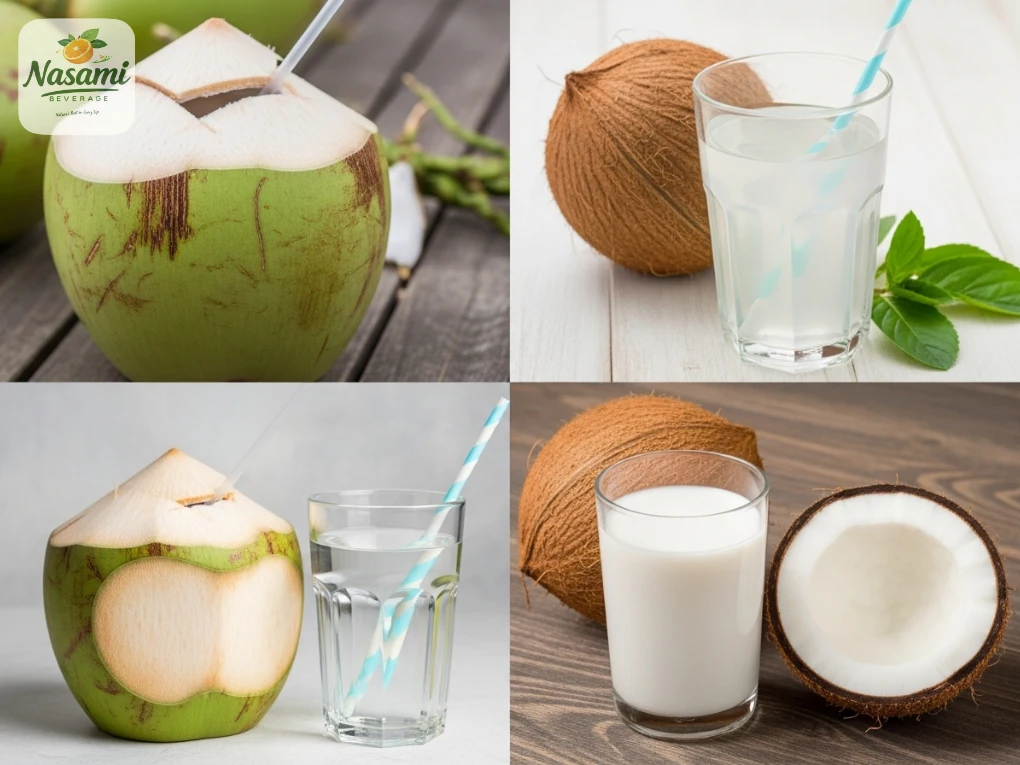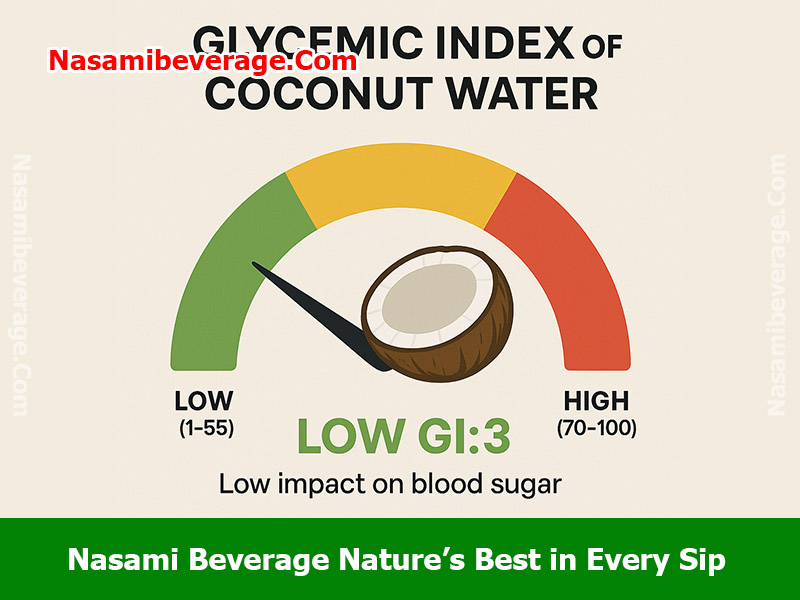Coconut Water vs. Coconut Milk
The world of coconuts offers a treasure trove of delightful and nutritious beverages. Among the most popular are coconut water and coconut milk, often confused but distinctly different.
While both are celebrated for their natural goodness and versatility, understanding the nuances between them is key to appreciating their unique health benefits and culinary applications.
This comprehensive guide will explore the fundamental differences, nutritional profiles, and best uses for each, helping you decide which coconut product best suits your needs.
What Exactly is Coconut Water?
Coconut water is the clear, translucent liquid found inside young, green coconuts. It’s a naturally refreshing and hydrating beverage, prized for its natural sweetness and abundance of electrolytes.
This liquid acts as a nutrient-rich sap for the developing coconut, providing essential nourishment. Unlike processed sugary drinks, pure coconut water offers a natural source of hydration with a relatively low sugar content and calories.
It’s often packaged in carton coconut water containers, making it a convenient option for a quick, healthy refreshment.
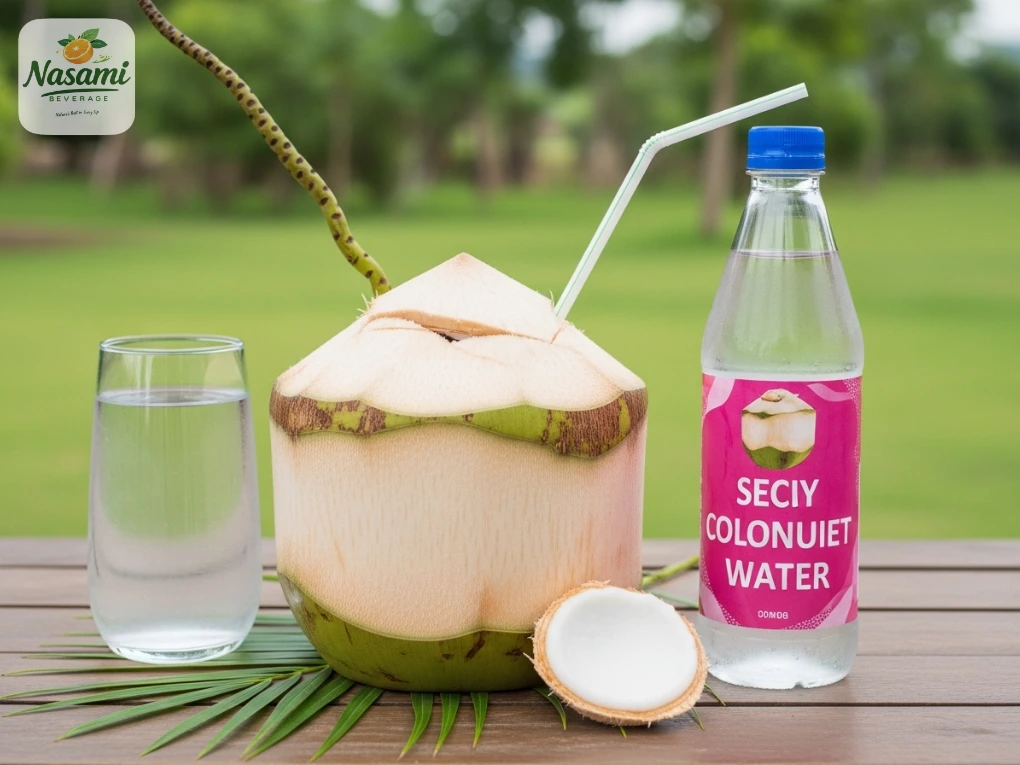
What Exactly is Coconut Milk?
In contrast, coconut milk is a creamy, opaque liquid derived from the grated flesh of mature brown coconuts. It is not the same as the water found inside.
To produce coconut milk, the white coconut meat is grated, pressed, and then strained, resulting in a rich, thick liquid.
This process extracts the oils and fats, giving coconut milk its distinctive texture and taste profile. Often hailed as a popular dairy alternative, coconut milk is a staple in many vegan and plant-based milk diets.
You’ll typically find canned coconut milk or varieties packaged in cartons, with options for both full-fat and light coconut milk.
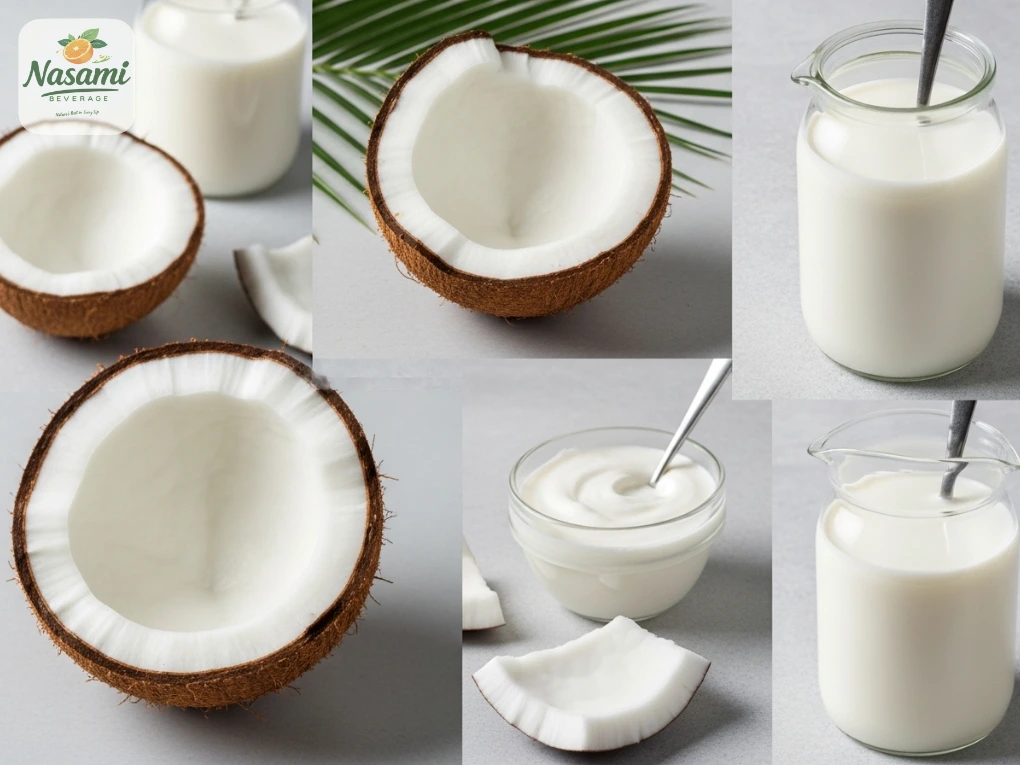
Key Nutritional Differences: A Side-by-Side Comparison
The difference between coconut water and coconut milk is most pronounced when examining their nutrition facts. While both originate from the same fruit, their processing methods and components lead to distinct nutritional profiles.
Coconut Water
- Calories: Very low, typically 45-60 calories per cup.
- Fat Content: Minimal to none.
- Sugar Content: Naturally occurring sugars, generally moderate.
- Electrolytes: Rich in potassium, magnesium, calcium, and sodium, making it an excellent hydration drink.
- Protein & Carbohydrates: Low in protein, moderate carbohydrates.
- Vitamins & Minerals: Contains small amounts of various vitamins and minerals.
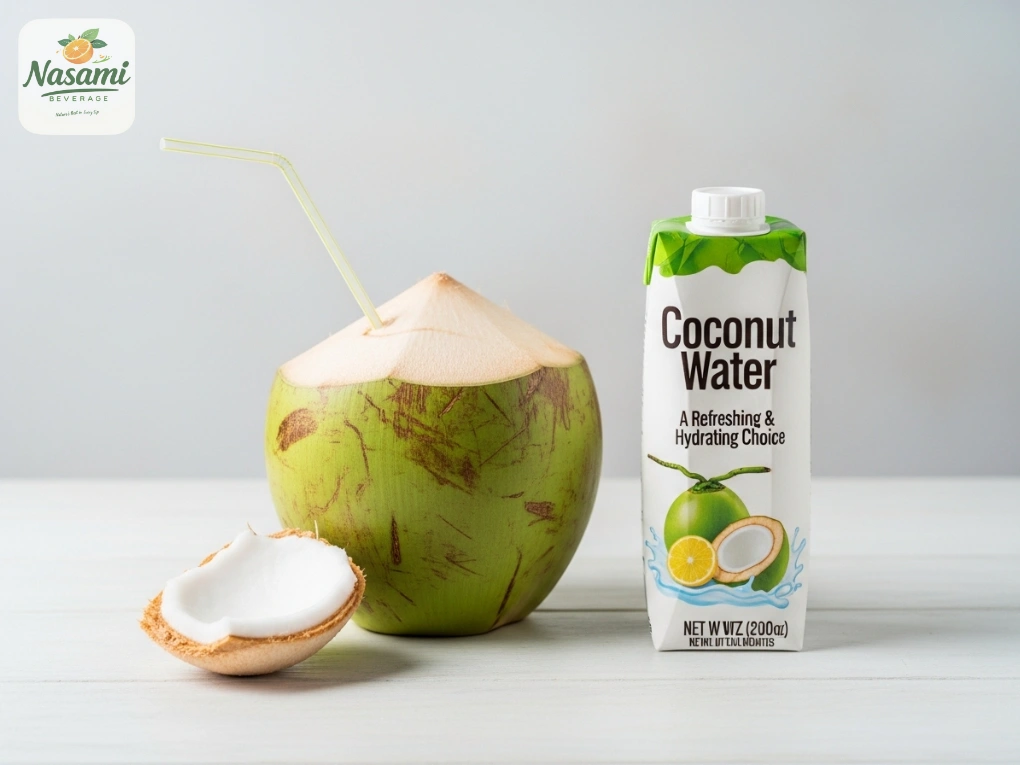
Coconut Milk
- Calories: Significantly higher, ranging from 150-550 calories per cup depending on fat content (light vs. full-fat coconut milk).
- Fat Content: High, primarily saturated fats, including beneficial MCTs (Medium-Chain Triglycerides).
- Sugar Content: Low in unsweetened varieties; sweetened coconut milk will have higher sugar.
- Electrolytes: Less concentrated in electrolytes compared to coconut water.
- Protein & Carbohydrates: Moderate protein, moderate carbohydrates.
- Vitamins & Minerals: A good source of vitamins (like C and E) and minerals (iron, magnesium, selenium).
This comparison highlights that coconut milk is a calorie and fat-dense food, while coconut water is a light, hydrating liquid.
This fundamental distinction guides their ideal uses and health considerations. For a detailed comparison of coconut water vs coconut milk, understanding these nutritional aspects is crucial.
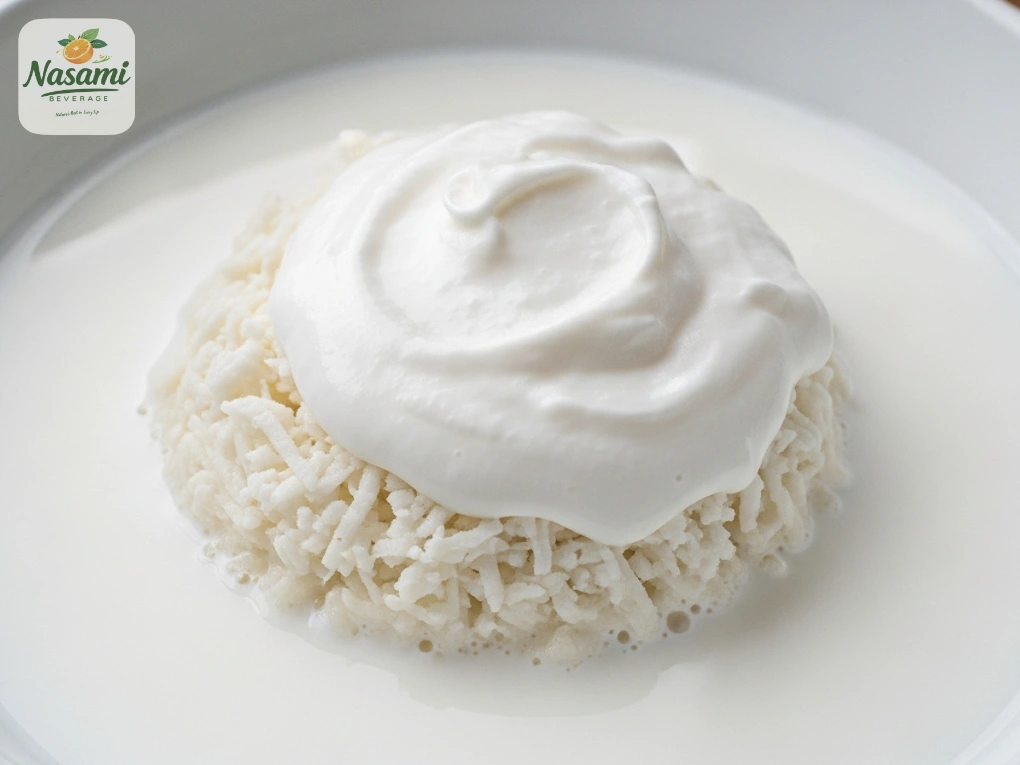
The Health Benefits of Coconut Water
Coconut water is often lauded as nature’s sports drink. Its primary appeal lies in its exceptional hydrating properties.
Rich in electrolytes like potassium and magnesium, it effectively replenishes fluids and minerals lost during exercise or illness.
This makes coconut water for hydration an ideal choice for post-workout recovery or simply as a refreshing everyday healthy beverage.
The health benefits of coconut water also include its naturally low calories and sugar content (in unsweetened varieties), offering a healthier alternative to sugary soft drinks and artificial sports drinks. Some studies suggest it can aid digestion due to its natural enzymes.
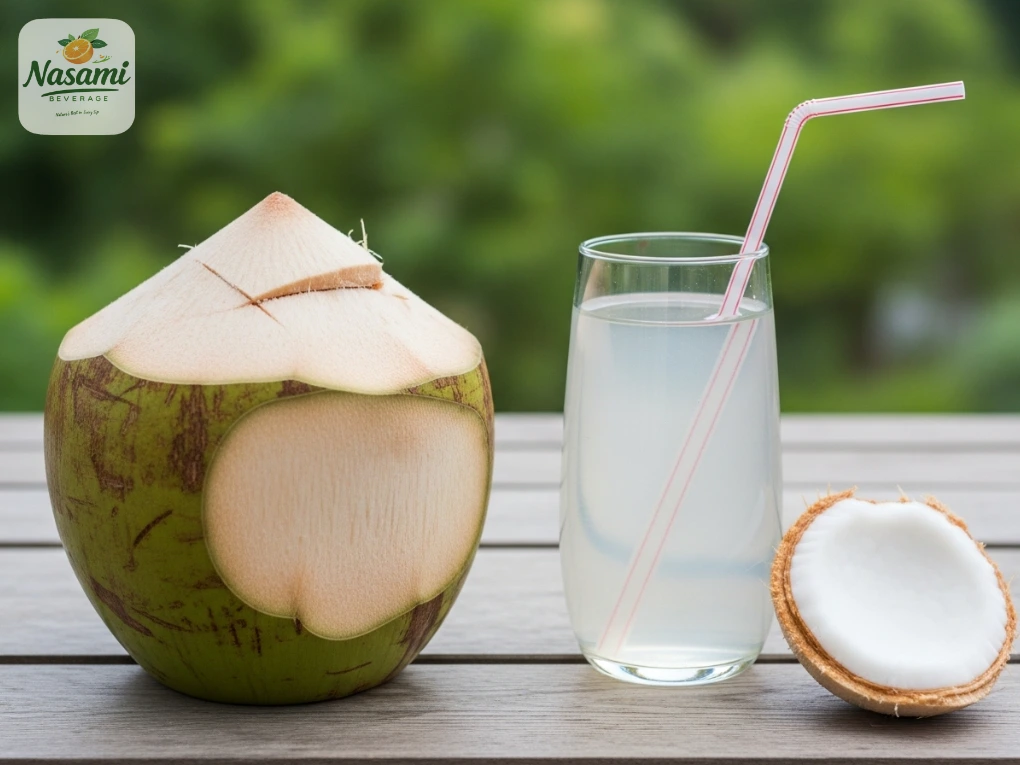
The Health Benefits of Coconut Milk
Coconut milk offers a different set of health benefits of coconut milk, primarily due to its fat content. It is a fantastic dairy alternative for those with allergies or following vegan diets, providing a creamy texture and rich flavor without animal products.
The fats in coconut milk include MCT oil, particularly Lauric acid, which is known for its antimicrobial properties. MCTs are easily digestible and provide a quick source of energy, potentially aiding in satiety and metabolism.
As a plant-based milk, coconut milk also contributes vitamins and minerals to the diet, supporting overall wellness. Its creamy nature makes it a satisfying and nutritious addition to many meals.
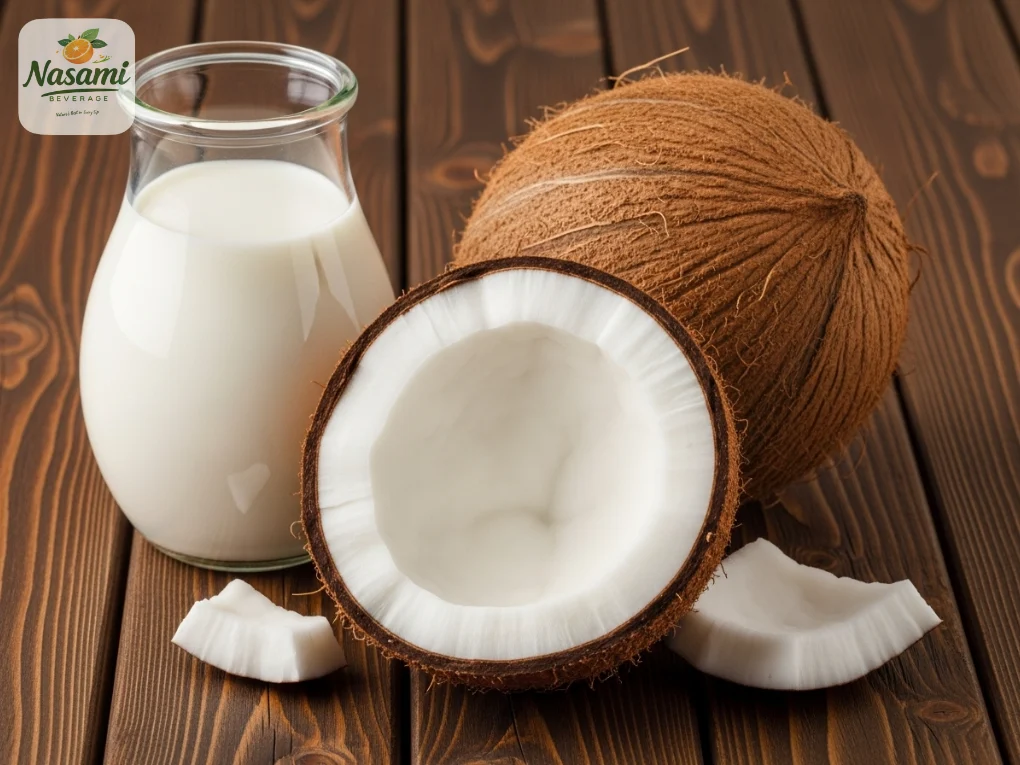
Culinary Uses: Where Each Shines
The distinct properties of these coconut products dictate their ideal cooking applications. Coconut water, with its light consistency and subtle sweetness, is excellent in:
- Smoothies: As a base for a nutritious blend.
- Hydration drinks: Mixed with fruit juices or standalone.
- Soups: Lending a delicate, tropical note.
- Marinades: Tenderizing and flavoring meats.
Coconut milk, on the other hand, is a star in vegan cuisine and lends its rich creaminess to a wide array of dishes. Coconut milk for cooking is incredibly versatile and can be found in:
- Curries: The foundational ingredient for classic Thai and Indian curries.
- Soups: Adding richness and body, like in tom kha gai.
- Desserts: Puddings, ice creams, and baked goods for a dairy-free indulgence.
- Sauces: Creating creamy, flavorful sauces for vegetables or proteins.
- Coffee and Tea: As a delightful plant-based milk substitute, particularly for those seeking dairy alternatives. It’s a crucial vegan cooking ingredient that can transform simple dishes into exotic culinary experiences.
Which One Should You Choose? Making Your Decision
Deciding between coconut water and coconut milk depends largely on your specific needs and dietary goals.
- For Hydration and Electrolyte Boost: Choose coconut water. It’s your go-to for post-workout recovery, a refreshing drink on a hot day, or a natural way to replenish fluids. Its low calories and fat content make it an excellent healthy beverage option.
- For Creaminess, Richness, and Dairy Alternatives: Opt for coconut milk. It’s indispensable in vegan cooking ingredients and for anyone seeking dairy-free options. Whether you’re making a hearty curry, a creamy dessert, or a rich smoothie, coconut milk delivers unparalleled texture and taste profile. Its MCT oil content offers a unique energy source.
When considering the coconut water vs coconut milk dilemma, think about the role it will play in your diet. Do you need a light, hydrating fluid, or a rich, creamy ingredient that adds body and flavor? Both are excellent coconut products, offering unique benefits.
Frequently Asked Questions (FAQs)
Can I drink coconut milk every day?
Yes, you can drink coconut milk every day, but moderation is key, especially with full-fat varieties due to their high fat content and calories. If you’re consuming it as a plant-based milk in coffee or smoothies, a moderate amount is generally fine. For regular consumption, consider light coconut milk to reduce calories and saturated fat.
Is coconut water good for daily hydration?
Absolutely! Coconut water is an excellent source of electrolytes and is naturally hydrating. Its lower sugar content compared to many fruit juices makes it a superior choice for daily fluid intake, especially if you’re active or live in a warm climate.
Are there any side effects to consuming too much?
For coconut milk, excessive consumption can lead to higher calorie intake and potentially increase saturated fat intake. For both, some individuals might experience mild digestive upset or digestion issues if consumed in very large quantities, due to the fiber or specific compounds. Always listen to your body.
How do I store opened coconut water/milk?
Once opened, both coconut water and coconut milk should be refrigerated in an airtight container. Coconut water typically lasts 3-5 days, while canned coconut milk may last 5-7 days. Check the product label for specific storage recommendations.
What’s the difference between light and full-fat coconut milk?
The main difference between light and full-fat coconut milk lies in their fat content. Light coconut milk has a lower fat percentage, typically achieved by adding more water during processing, resulting in fewer calories and a thinner texture. Full-fat coconut milk is richer, creamier, and has a higher concentration of fats, including MCT oil.
From the refreshing clarity of coconut water to the rich creaminess of coconut milk, the coconut fruit offers diverse healthy beverages and vegan cooking ingredients that cater to various tastes and needs.
Understanding their distinct nutritional profiles, health benefits, and culinary uses empowers you to make informed choices. Whether you’re hydrating after a workout or whipping up a delicious dairy-free curry, both coconut products deserve a place in your pantry.
Embrace the versatility and natural goodness that the humble coconut provides, and enjoy the unique advantages each form of Coconut has to offer.
